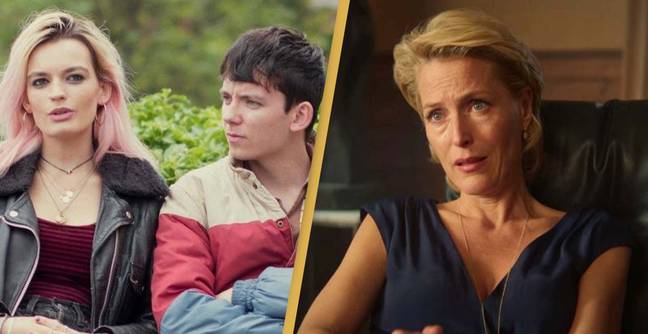If Netflix and Disney are the de facto primary services to which subscribers pay a monthly fee to avoid cable, then that leaves little room for other services to squeeze their way in. At some point, the cost of maintaining multiple services will exceed what somebody would otherwise pay for cable, which doesn’t make a lot of economic sense for someone trying to cut the cord. There’s also only so much content that anyone can reasonably watch. Particularly for households on a budget, it makes more sense to subscribe to just a handful of services that provide value than it does to pay a large monthly fee to maintain subscriptions that aren’t being used.
Source: Get Ready for Your Streaming Services to Merge
That’s a load of horse puckey. I was paying for cable TV with the everything-but-premium-channels lineup, and I seem to recall that was something like $80/mo. Since stopping HBO Max, and given that Prime is essentially free (because I’d pay for it for the free shipping alone), I’m only at Netflix, Disney, and Hulu+. Together, that’s about $45, and that’s enough content that I get overwhelmed with choice. Even if you threw in the cost of HBO and Prime, I’d just be where I started, and arguably with a lot more content than just “cable TV.” For DANG sure, it’s a LOT more content that I want to watch.
I don’t mind saying that I always resented the “ESPN tax,” and they way they bundled it so that you basically either have the legally-mandated, minimum, “survivor” cable, or you stop before the premium channel packages, leaving this huge gap open, and essentially forcing you to carry a bunch of channels you could not possibly care less about. I mean, shopping channels? Are you serious? With the internet in every hand in America, how are those even still a thing? So, yeah, I hope cable companies are doing terribly right now, but a buddy of mine was just saying that they’re going to start consolidating these services — and we all know they will — and we’re going to be right back where we started, paying for a bunch of stuff no one cares about to, say, watch the Office, amirite? They can all suck it. I’ll cancel it all before I get roped into another virtual cable company.
I’m pretty sure that Netflix will continue to dominate. They were smart, and got their own production company up and running. Along with their world-class technology stack, they simply don’t need anyone else. Their content is killing it. The Witcher? Cobra Kai? Stranger Things? The Crown? The Queen’s Gambit? Are you serious? They don’t just not need anyone else, they’re setting the pace for custom content. Apple TV has made some great stuff too. The Morning Show? Defending Jacob? They just need more.
What’s fascinating about this situation is how the big 3 are floundering. These cable-package protected companies are going to have to change their mindsets about the content they produce, when it’s not about charging for advertisement airtime in real time for a single viewing. Because, when you make a show that flames out as badly as, say, Lost, you get one round of sales, and that’s it. You’re not going to sell DVD’s or digital seasons of that show, because it’s a turd, and everyone knows it now. It’s gone down the memory hole. Heroes, for NBC, was the same story. Battlestar Galactica, for Sky, was another. Shows with unbelievable starts, which were allowed to be run into the ground by their runners. No, if you want to sell subscriptions to a service based on your content, you have to create content that people are going to want to watch a couple or few times, and that’s going to take better selection of producers, directors, and writers than any of them have right now.
What I can’t fathom is why Disney hired J.J. Abrams for Star Wars Episode VIII, and then acted surprised when he made a continuity-destroying turd that couldn’t be salvaged despite half of Episode IX being used to retcon it. There will be no boxed set of all 9 episodes on DVD, commemorating the canonical Star Wars story, because it fell apart at the end like a tower of Legos. It’s done. They bought their gross in the theaters, and it’s over. No one’s going to buy the DVD’s or the digital library entries, and Disney can’t use it as leverage to sell their service. No, you go get one of the magic guys from the Marvel universe, get him to make The Mandalorian, and you use THAT to sell your service.
(And it does HBO no service to have hitched their wagon to the DC “cinematic universe.” Like the last 3 Star Wars movies, those are 1-shot viewings too.)
When someone sits down to watch something on a service, they’re not just looking for some thing that optimizes for their mood with something they can watch right now — because that’s what’s airing on real-time programming — they’re optimizing to watch something based against everything else on the service. That’s why The Office is still such a hit. Can you even name another NBC show? I would have given you Agents of Shield, but that’s been pulled back into the Disney mothership (and is no longer considered canon). What defines success in streaming services is much different than what has passed for success in over-the-air and cable programming.
I haven’t seen the article about it yet, but the networks are seriously behind the curve, and I don’t even think they’ve realized how far yet. You have to have a complete plan in place. You can’t just start a show, and then get serious about it when the ratings come in. You have to have a finish in mind. For instance, it’s absolutely clear that the Marvel guys had the big picture in mind for their cinematic universe, and the DC guys were just phoning it in. ALL SHOWS have to have a complete plan at the start these days. You can phase it, but you have to have a complete story ready to shoot, or no one will care about it, and you won’t be able to leverage it to sell a service. Just look at the latest example of The Expanse on Amazon Prime. The first couple of seasons had rave reviews, and now it’s flamed out. You can’t run a show like this any more.

